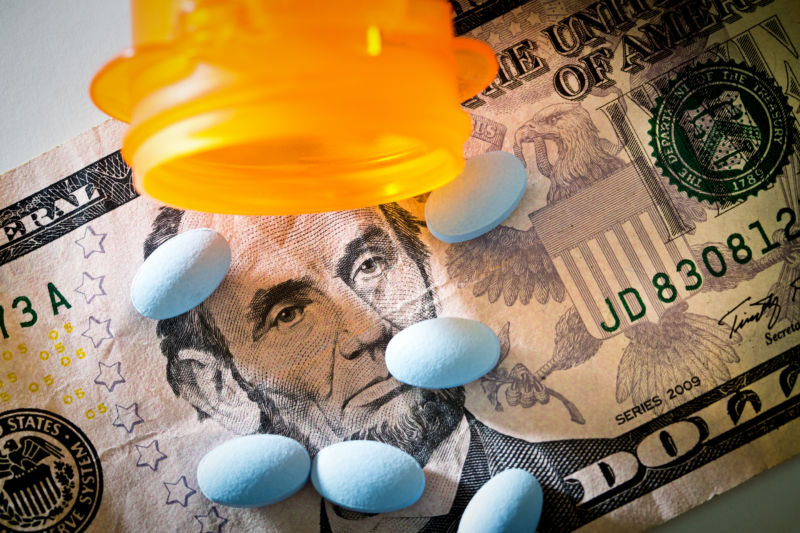
Pharmaceutical companies spend around $6.5 billion a year on advertising, and even though Facebook prohibits the use of “sensitive health information” in ad targeting, about $1 billion of that ad spending ends up in the companies’ pockets. Big Pharma, it turns out, has found some creative ways to work within Facebook’s rules.
Facebook’s ad targeting allows drug companies to zero-in on likely patients by aiming not for their conditions but for Facebook-defined interests that are adjacent to their illnesses, according to a report by The Markup. The site used a custom web browser to analyze what ads Facebook served to 1,200 people and why, and it found that Big Pharma frequently used illness “awareness” as a proxy for more sensitive health information.
The range of treatments advertised to potential patients ran the gamut. Novartis used “National Breast Cancer Awareness Month” to sell Facebook users on Piqray, a breast cancer pill that lists for $15,500 for a 28-day supply. AstraZeneca ran ads for Brilinta, a $405-per-month blood thinner, based on whether Facebook thought a user was interested in “stroke awareness.” And GlaxoSmithKline shows ads for Trelegy, a $600-per-month inhaler, if someone was flagged by Facebook for “chronic obstructive pulmonary disease [COPD] awareness.”
Facebook’s targeting allows pharmaceutical companies to get even more creative. GlaxoSmithKline served up ads for another COPD drug if a user showed interest in “oxygen” or “cigarettes.” COPD, of course, can be caused by emphysema, which can result from years of smoking. Merck used terms like “chemical industry,” “Corona beer,” and “bourbon” to select users for ads for Keytruda, a cancer immunotherapy that can be given to treat everything from melanoma to lung cancer, bladder cancer, and head and neck cancer. It costs $9,869.94 for a three-week course.
Capitalizing on the opportunity, Facebook has an entire section of its “Facebook for Business” site devoted to case studies in health and pharmaceutical advertising. One for AstraZeneca shows how companies might use social advertising in concert with TV commercials, which still constitute 75 percent of pharma ad spends. A “brand lift study” run on Facebook allowed AstraZeneca to “refine targeting solutions” for Symbicort, another COPD and asthma treatment.
Interest-based ad targeting on Facebook is widely used across a variety of industries, but it has raised flags among health privacy researchers when used to sell medical treatments. Even Google has steered clear of the practice, instead selling targeted advertising based on the content next to which an ad appears. Their practice is more in line with how pharmaceuticals are advertised on TV and in magazines, where drug companies buy slots based on the overall demographics of the audience rather than individuals.
Though it may exploit users’ privacy, targeting pharmaceutical ads based on Facebook-defined interests is not illegal. In a case decided by the US Court of Appeals in 2018, the judges ruled in favor of Facebook, saying that just because users “searched and viewed publicly available health information,” they were not entitled to privacy, because Facebook’s terms allowed the company to harvest the data, and that data “cannot, in and of itself, reveal details of an individual’s health status or medical history.” The large sum of ad spends on Facebook suggests that pharmaceutical companies believe otherwise.
https://arstechnica.com/?p=1763427

